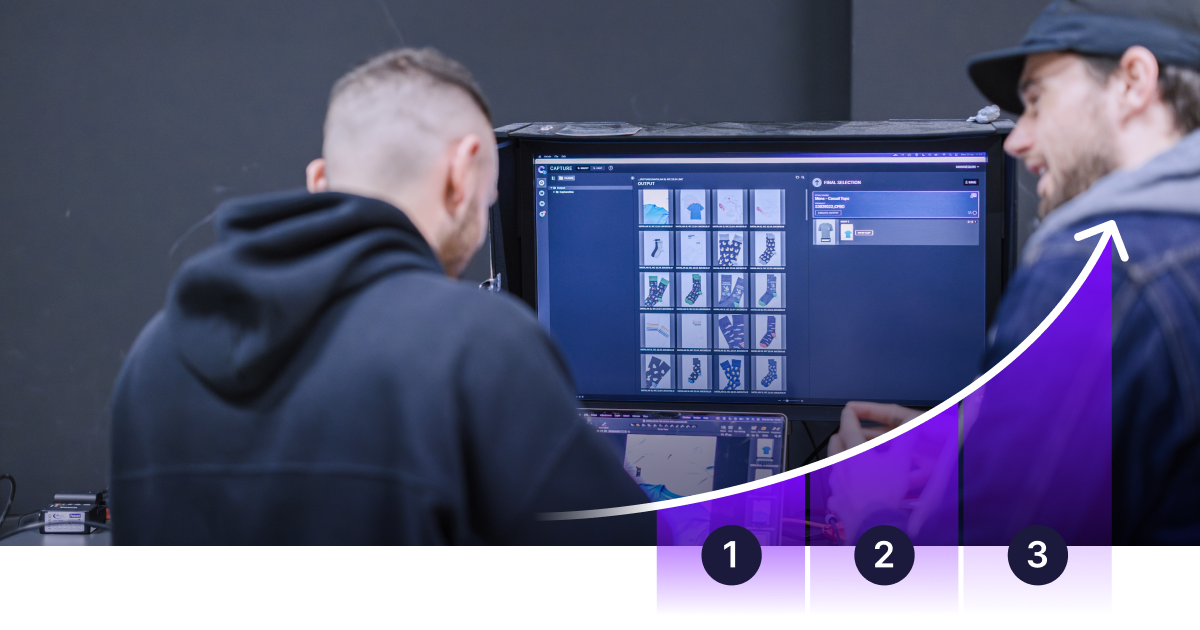Elevating Your Content Studio Management: Key Steps on the Path to Operational Excellence

In this series, we’re offering a taste of some of the best practices and strategies featured in our Studio Maturity Reports. If you want to dive deeper into optimizing your studio's performance, we suggest taking our Studio Maturity Self-Assessment. This tool will provide you with a fully customized report outlining exactly what steps to take to advance your studio's operational maturity and unlock its full potential.
The Importance of Effective Studio Management
Effective management is crucial for success in the high-pressure, complex, and fast-paced environment of a content production studio
But how does a studio establish a leader in a studio management position? And how do you ensure they continue to learn, grow, and evolve along with the studio?
To find out, we asked Eva Tjhie—former Head of Operations at I Heart Studios and current Customer Success Manager at Creative Force—and Tierney Morgan—former Photo Operations Manager at CaaStle and current Senior Customer Success Manager at Creative Force—to share insights from their careers about what makes a great studio operations manager and how studios can improve their management effectiveness.

Achieving Managed & Sustainable Studio Management
When working with studios with Reactive Studio Management, we often find no designated leader overseeing daily operations or the existing leader struggling to effectively manage the studio team leaders (e.g., Photography Lead, Post-Production Lead, Art Direction Lead). Decision-making is often delayed by a lack of clear direction or dissenting opinions, and operational changes take longer than necessary due to the absence of a strong leader, staff resistance, and poor communication.
Eva explains that this lack of strong studio management has a negative cascading effect that impacts nearly every aspect of a studio’s operations.
“When you work in a studio with poor or non-existent management, inefficiencies arise everywhere,” says Eva. “Poor management causes team leaders to work in silos, focusing only on their areas of the workflow. Everyone ends up pushing in different directions. The studio needs someone to bring everyone together and present a unified direction. Their role, in addition to managing the day-to-day operations, is to encourage team leaders to collaborate, meet regularly to review production data, and discuss operational issues. Without that person in place, continuous improvement becomes nearly impossible, and efficiency, production quality, and the work environment for creatives all suffer.”
If your operations don’t already have someone like a studio operations manager in place, filling this role should be a priority. Having someone with a bird’s-eye view of your studio’s operations and who can serve as a point of coordination across the various areas of your production process is a foundational step in the studio maturation journey.
“If you’re hiring internally for this role, look for someone well-respected by their colleagues and with a deep understanding of the overall content production process of your studio,” says Eva, “If you have someone who has the rare voice willing to raise issues, wants to constantly improve how things are done, and is annoyed by inefficiencies, you’ve found your ideal candidate.”
With a new studio manager selected, (or if you have one already but they need help to lead their teams more effectively), Eva suggests their first step should be establishing a weekly meeting between themselves and other team leads or critical operational stakeholders. This meeting should occur at the same time and day each week, follow a structured agenda, and provide an opportunity for studio management and creative team leads to work together more effectively on operational topics spanning the entire content production process as a single, cohesive unit.
“Getting into a weekly meeting cadence between studio leaders and creative team leads opens up a world of possibilities. It offers a platform for raising operational challenges, reviewing production data, and proposing solutions. Getting all those stakeholders together is a huge first step in getting the entire studio aligned and working in the same direction.”
For inspiration on how to structure the weekly operations meeting, we suggest our Weekly Meeting Agenda inspired by Gino Wickman’s L10 Meeting from his book Traction. We also encourage you to explore Wickman’s full suite of resources to help your teams get better at setting goals, communicating about issues, and improving collaboration.

Achieving Optimized Studio Management
In a studio with Managed & Sustainable Studio Management, we expect the studio manager to be well-positioned to oversee the entire creative production process. However, at this maturity stage, they may still lack the skills to manage their studio teams effectively. This can result in the studio manager facing regular resistance from studio team leaders when proposing operational changes and struggling to get these leaders to work together as a cohesive unit.
For studios aiming to optimize their management, it is crucial to recognize that leading Creative Operations can be both demanding and isolating. Studio managers face the simultaneous pressure of managing the studio and its various teams while also managing relationships with senior stakeholders. And, as Tierney explains, leaving them to figure things out on their own is a surefire way to set them up for failure.
“Mentorship is important for everyone in the studio, but it's perhaps most critical for studio managers,” says Tierney, “They need someone within the organization who can act as an experienced, objective third party, serving as a sounding board to help them work through issues and develop potential strategies for any challenges they face.”

Tierney recommends that studios start by developing informal, or preferably formalized, mentorship opportunities. This can be achieved by identifying senior staff members within the organization or from the organization’s industry network. Regular meetings between the mentor and studio manager provide opportunities for the studio manager to seek advice, share ideas, and express frustrations. Mentors can also help studio managers identify areas for professional development and resources for additional training to help the studio manager hone specific skills and improve overall performance, all of which are essential for continued growth and success in their role. Industry events like Flow or Creative Force Content Studios Connect are just two examples of excellent opportunities for studio managers to connect with experienced peers in similar roles and build a supportive network to rely on.
Unlocking the Full Potential of Your Studio Management
Effective studio management is crucial for unlocking a studio’s full operational potential, yet it remains one of the most challenging aspects of creative operations. As we’ve explored, transitioning from Reactive to Managed & Sustainable management requires strong, cohesive direction and continuous improvement. By helping studio leaders establish themselves through structured weekly meetings with the team and implementing mentorship programs with senior members of the organization, studios can provide their managers with opportunities to grow, unlocking the potential for further operational maturity.
Want more of our best practices and strategies for taking your Studio Management to the next level? Take our Studio Maturity Self-Assessment to receive a customized report outlining the exact steps needed to advance your studio's operational maturity and unlock its full potential.








